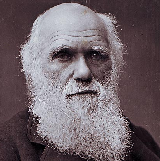Charles Darwin MBTI Personality Type
Personality
What personality type is Charles Darwin? Charles Darwin is an INTP personality type in MBTI, 5w6 - sp/so - 594 in Enneagram, RLOEI in Big 5, ILI in Socionics.
In every online community or fandom, there is inevitably a group of people that claims that the original version of a thing is the best because it came first. In the Typology community, we have the Jung hipsters, who maintain that MBTI, Socionics and the rest are just corruptions of Jung's original work, and argue that we should take all of Jung's writings and typings as gospel. This is completely wrong. Jung's own definitions of the functions are kind of vague and honestly not that well-written, and are thus open to a whole variety of interpretations. That's why their MBTI and Socionics descendants vary from one another (for example, Socionics Se has the take-charge attitude of MBTI Te, while Socionics Si has MBTI Se's concerns with aesthetics). But that's okay! Because although Jung may have originated the theory, and we can respect and appreciate him for that, we can also admit that those that came after him generally improved on it a lot. And the same goes for his typings--just because Carl Jung said something doesn't make it true. Claiming that Jung knew cognitive functions better than anyone is a fallacy; would guitarists say that the first person to make an electric guitar was the best electric guitar manufacturer of all time? They wouldn't, and they shouldn't, because it's not true. Older does not necessarily equal better. Darwin, for what it's worth, does seem to have been an INTP.
Biography
Charles Robert Darwin, (1809 – 1882) was an English naturalist, geologist and biologist, best known for his contributions to the science of evolution. He established that all species of life have descended over time from common ancestors and, in a joint publication with Alfred Russel Wallace, introduced his scientific theory that this branching pattern of evolution resulted from a process that he called natural selection, in which the struggle for existence has a similar effect to the artificial selection involved in selective breeding. Darwin published his theory of evolution with compelling evidence in his 1859 book On the Origin of Species, overcoming scientific rejection of earlier concepts of transmutation of species. By the 1870s, the scientific community and a majority of the educated public had accepted evolution as a fact.
Related Personalities

Richard Dawkins

Avicenna / Ibn Sina

Jane Goodall

Anthony Fauci

Florence Nightingale

Louis Pasteur

Alexander Fleming

Johann Gregor Mendel





